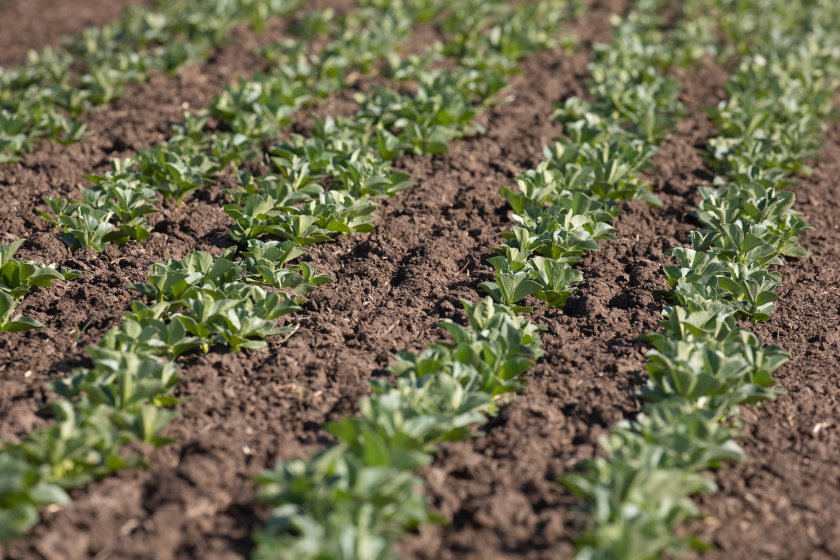
Farmers who are part of a project to grow more pulses and cut carbon emissions will be the first to benefit from a new knowledge exchange platform.
ADAS has created 'PulsePEP' where trial results, data and supporting information from farmers involved in the Nitrogen Climate Smart (NCS) project will be hosted.
Launched today at the CropTec Show, the aim for the online tool is to bring together a community united behind the aims of the NCS project.
One aim is to bring about a 1.5Mt CO2e per annum or 54% reduction of the maximum potential for UK agriculture through increasing pulse and legume cropping in arable rotations to 20% across the UK.
The NCS project also seeks to replace 50% of imported soya meal used in livestock feed rations with home-grown pulses and legumes.
Dr Thomas Wilkinson, senior research consultant at ADAS, an independent agricultural consultancy, said PulsePEP had been designed with farmers in mind.
"By sharing knowledge, PulsePEP will ensure we can produce pulse crops that are profitable and resilient, so that farmers will want to grow them,” he said.
“Those farmers who are doing on-farm trials for the NCS project will share data that will hopefully demonstrate the benefits of growing pulses in rotations.
"These trials will implement and build on the latest scientific understanding from research platforms and small-plot trials.”
The NCS project is a four-year £5.9 million research programme involving 200 farms and 17 industry partners across the country.
Farms are involved in either trials, carbon baselining, or sharing information, while industry partners are also contributing their expertise.
With PulsePEP now live, the next stage of the project is to carbon baseline the farms involved.
Tailored assistance will be provided by the Farm Carbon Toolkit (FCT), allowing GHG emissions to be tracked throughout the project.
Some of the farms will be appointed as ‘pulse pioneers’ and will be paid to carry out trials, involving novel concepts, ideas, products, rations and sensors designed to help farmers reduce emissions.
Dr Wilkinson explained that PulsePEP was free to use and anyone could log on to view the content.
"Those hoping to engage more can set up an account and then post content themselves or follow specific topics," he said.
“Research from, and identified by, the NCS project partners will also be accessible, fulfilling the project’s aim to connect and link to a range of useful content associated with pulse growth.
"We highlight content to ensure it can be trusted and to help bring the most authoritative response to any queries raised.”
